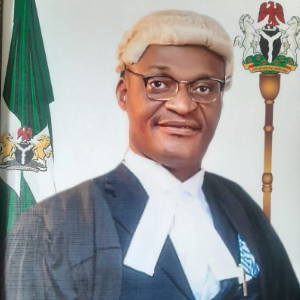Title : Powering energy transition in Africa through nanotechnogy
Abstract:
Africa as a continent is in dire need of sustainable energy .This is premised on the need to extricate majority of the African population from poverty to economic growth anchored on the deployment of modern sustainable and efficient energy services .There is a proven inverse relationship between the citizens of most African countries and access to affordable and sustainable energy. This is why it is imperative and germane to promote energy transition from highly carbonized fossil fuel- led energy scenarios in leading African Countries such as Nigeria and South African, to a more renewable and energy efficiency trajectory anchored on nanotechnology. It is uncontroverted that globally, house-hold energy consumption accounts to 40% of energy uses and some African countries such as Nigeria and South African, account to a reasonable global greenhouse gas emission due to their highly energy- intensive industries such as (crude oil and coal- fired industries) . The poor access of most African citizens to affordable clean energy trajectory, has affected the commitment of these Countries to comply with greenhouse gas agreements and global carbon governance architecture. The desire to maintain access to sustainable and efficient energy while commendable in Africa, is subject to eradication of poverty and food insecurity which access to any energy source could guarantee. The objective of this paper therefore is to critically examine energy scenarios in Nigeria and South Africa, being notable examples of energy intensive African countries; to see how to strike a balance between the need to eradicate poverty arising from poor access to sustainable energy, and achieving economic growth anchored and guaranteed through nanotechnologies. This further anchored by employing mechanism for efficiently storing of produced energy; production of more efficient fuel cells, enhance solar silicon production, and useful wind blade. All of these innovations, the author argues, shall be premised on he deployment of nanotechnologies, which will promote not just good access to energy but propel economic growth, food production and poverty reduction in Africa. This overall objective of this paper is to uncover and critically evaluate how the transition to sustainable energy can be powered and structured around the innovation anchored on nanotechnologies and their overall impacts on the African continent.
KEWWORDS: Nanotechnologies, Energy Transition Africa, Nigeria and South Africa.


